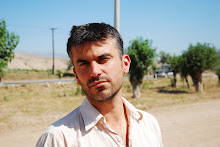Just when you think you are beginning to understand how development works the proverbial spanner smacks you on the back of the head knocking another piece of the puzzle from the picture. Then at some stage you give up trying to understand how it ALL works and end up concentrating on the detail of one specific issue, this is no better, and you might develop a repetitive tick if you continue. Development is a messy business and although the intentions are genuine, the final result is not always what was required.
Here are some common examples of how it all doesn’t work.
• A remote village has a new water supply system installed from a source several kilometres away. The main pipe is cracked; it is patched up with a coca cola bottle and a plastic bag. It leaks, in fact it pours like a power shower. This phenomenon is repeated the length of the pipe which is haemorrhaging water and carving erosion gullies. However, when the water the reaches the stand points, the locals decided to concrete the taps so they are permanently on’ the excess water cascades down the unpaved roads rendering them impassable.
• The provision of heavy duty Chinese bore-hole pumps. They lasted less than a year resulting in the water supply for 15,000 being affected. Finally, they resorted to reinstalling Russian pumps and fixing them periodically until they burnt out.
• Planting of trees is an old favourite, however if they are planted on an imminent land slide, or not protected from herds of hungry animals, or planted at the wrong time of year, or on a place dry as a bone, or not sheltered from icy winds, they either are eaten, washed away or whither into a pitiful stick.
• Extra payments to government officials to complete work that is really already part of their job description.
• The inability for a native Tajik person to present his information to a Tajik Committee in his country’s language because most the donors and implementers speak Russian and English.
• The distribution of posters to women who cannot read.
• The building of a new school due to irreparable damage to the old school, only for the old school to be repaired sometime later by another NGO.
• Large agricultural warehouse facilities remain empty and unused.
• 3 hours work, 6 man hours chasing invoice template, 15 emails, and 2 months (still) waiting for $80.
The list is endless, in fact; maybe there will be a part two. I suppose on reflection, small scale, long term, self help sustainable capacity building incorporating self governance and gender empowerment to people in community based organisations through a participatory approach still needs some refining.
I will leave you with this one. The Chinese have invested heavily in the road infrastructure, lending money to the Tajik government (who then are obliged to use a Chinese contractor so the money flows back into China) to construct a network for the future.
A Chinese Road After 1 Year of use by Cars, Lorries and Goats (Obi Garm, Rogun)




1 comment:
Loved your observations... what about planting trees in Dushanbe? When is the wrong time?
Post a Comment